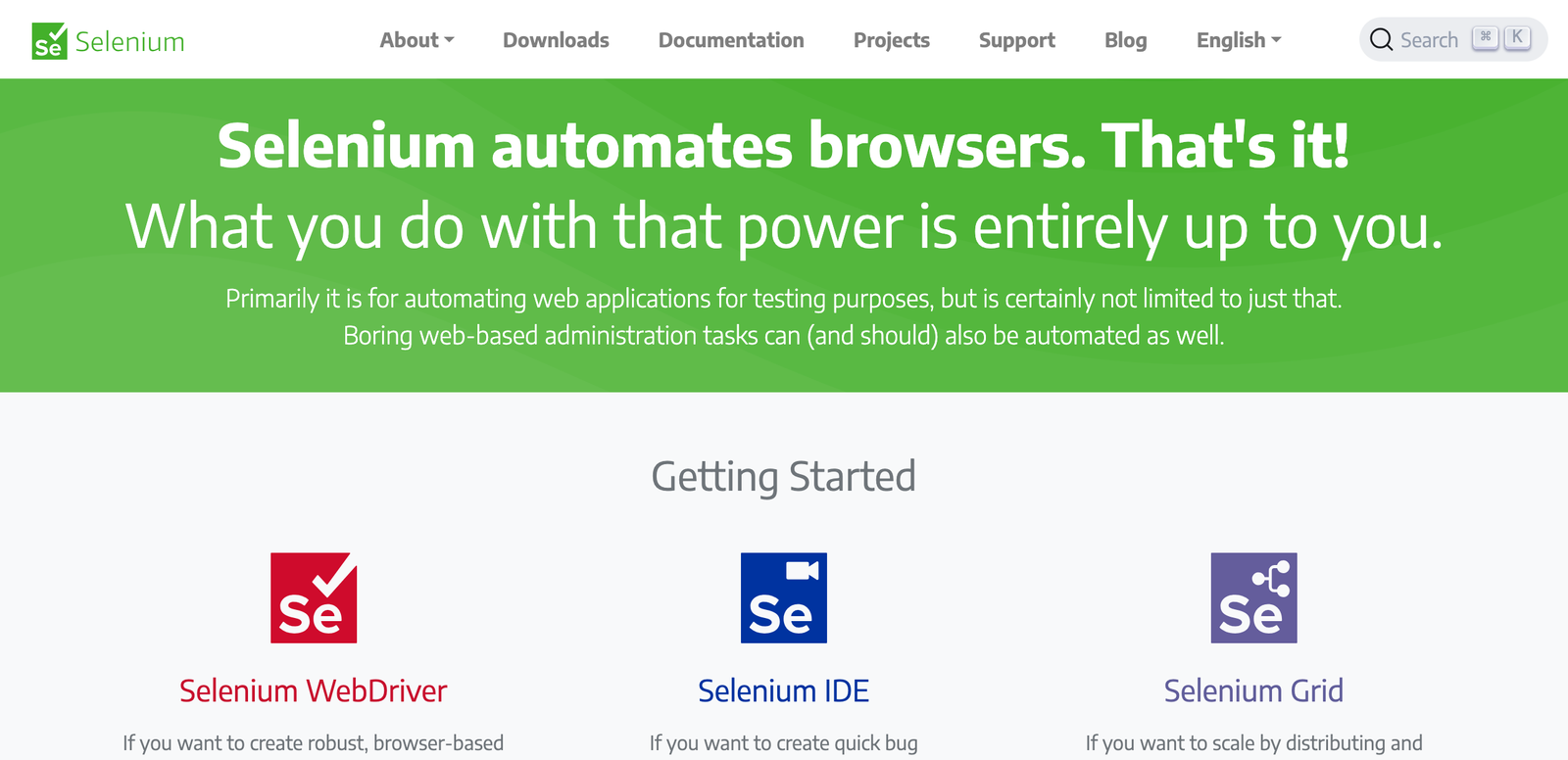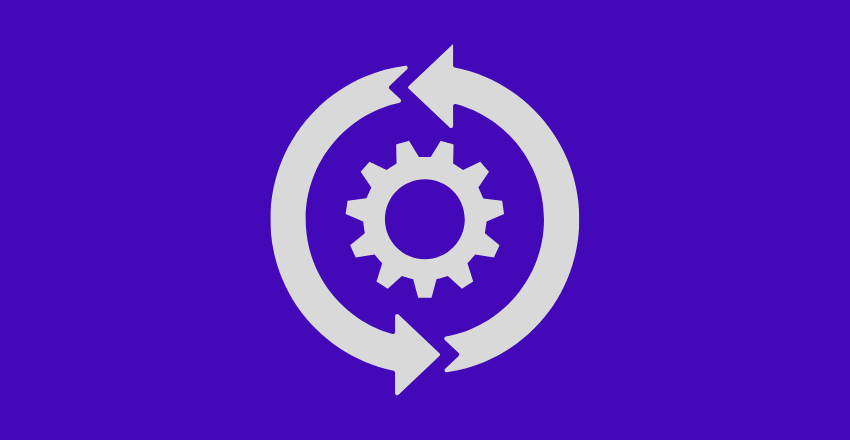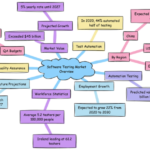
A software quality assurance engineer is an essential role in any software development team. This job requires high attention to detail, technical expertise, and the ability to work well within a team.
Software quality assurance engineers are responsible for ensuring that software applications are tested and meet the required quality standards before release.
This involves creating test cases, running automated tests, and working closely with developers to identify and resolve bugs and issues. They also play a critical role in ensuring that documentation and other quality assurance processes are up-to-date and followed.
Overview of the Software Quality Assurance Engineer Role
A software quality assurance engineer is responsible for ensuring that software products meet the established standards of quality and customer satisfaction. The role requires a combination of technical and interpersonal skills, as well as extensive knowledge of software testing methodologies and tools.
The primary duty of a QA engineer is to develop and implement test plans and test cases for software applications. This includes identifying defects and issues within the software, as well as verifying that all requirements are met. QA engineers are also responsible for documenting and reporting any issues that are discovered during the testing process.
Additionally, a software quality assurance engineer must work closely with development and product teams to ensure that projects are completed on time and within budget. This includes collaborating with colleagues to identify, prioritize, and resolve any issues that arise during the software development lifecycle.
Overall, the role of a software quality assurance engineer is critical to the success of any software product or application. The position requires a unique combination of technical and interpersonal skills, as well as a commitment to delivering high-quality software products that meet the needs of customers.
Importance of Documentation in Quality Assurance

Quality assurance in software testing involves several essential processes, one of which is documentation. QA documentation is a critical component of software testing that ensures consistency, accuracy, and clarity of communication within the team. The importance of documentation in QA can be observed in various aspects of the quality assurance process.
Clear Communication
QA documentation helps ensure clear communication between the quality assurance team, development team, and product team. By documenting the testing process, test results, and test cases, the QA team can communicate with other teams more effectively. QA documentation helps in a better understanding of the software application, its features, and requirements. It also enables everyone involved in the project to stay on the same page.
Traceability
QA documentation enables traceability of the testing process, which means it provides a record of all activities performed during testing. This traceability allows the QA team to track the progress of testing, identify defects easily, and fix them promptly. QA documentation also helps in tracking changes made to the software application, making it easier to identify the root cause of defects.
Compliance
QA documentation ensures compliance with industry standards and regulations, which are essential in specific industries such as healthcare, finance, and aviation. Documentation provides evidence of adherence to legal and regulatory requirements, which is crucial for compliance purposes. Without proper documentation, businesses may face severe legal consequences.
QA documentation is a crucial component of software quality assurance that cannot be ignored. It helps ensure clear communication, traceability, and compliance with legal and regulatory requirements, making it a vital part of the software development process.
Key Skills and Qualifications for a Software Quality Assurance Engineer
A software quality assurance engineer plays a vital role in ensuring the software is fully functional, meets customer needs, and is free of defects and bugs. Individuals in this role must possess a specific set of skills and qualifications to be successful.
Some key skills required for this role include:
- Attention to Detail: An ability to pay close attention to detail and spot errors and defects efficiently is essential. Testers must be thorough and methodical, ensuring that no aspect of the software goes unchecked.
- Knowledge of Testing Methodologies: Testers must have knowledge of different testing methodologies and be able to adopt them appropriately. These methodologies may include functional testing, regression testing, and load testing.
- Technical Skills: Good technical skills, including an understanding of software development processes, programming languages, and databases, are essential. Knowledge of tools such as Selenium, JIRA, and TestRail is also beneficial.
- Communication Skills: Testers must be clear and concise in written and verbal communication. They must be able to report bugs and defects to development teams and product managers effectively.
Along with the above skills, some essential qualifications for a software quality assurance engineer include:
- A bachelor’s degree in computer science or a related field is a common requirement.
- Professional certifications such as Certified Software Tester (CSTE) or ISTQB Certified Tester Foundation Level (CTFL) prove their proficiency in testing methodologies and are beneficial.
Key Skills and Qualifications for a Software Quality Assurance Engineer:
Attention to Detail, Knowledge of Testing Methodologies, Technical Skills, Communication Skills, Bachelor’s degree, and Professional Certifications.
Software Testing Techniques and Tools
Software quality assurance engineers use a variety of techniques and tools to ensure the quality of software applications. Below are some of the most commonly used techniques and tools:
Functional Testing

Functional testing ensures that the software application performs its intended functions correctly. Testers use test cases to validate each function, ensuring that it meets the requirements specified in the software design documents. This type of testing can be done manually or with automation tools such as Selenium, TestComplete, and HP Unified Functional Testing (UFT).
Performance Testing
Performance testing assesses how well the software application performs under different situations. This includes load testing, stress testing, and endurance testing. Load testing checks how many users can use the application simultaneously; stress testing checks how well the application performs when it exceeds its expected workload; and endurance testing checks how well the application performs over a prolonged period of time. Performance testing can be done manually or with tools such as Apache JMeter, LoadRunner, and Gatling.
Security Testing
Security testing evaluates the security of the software application. It involves identifying vulnerabilities and weaknesses in the software and ensuring that they are addressed before deployment. Security testing can be done manually or with tools such as Burp Suite, Metasploit, and OWASP Zed Attack Proxy (ZAP).
Automation Testing Tools
Automation testing tools enable software quality assurance engineers to automate their testing processes, reducing the time and effort required for testing. Popular tools include Selenium, TestComplete, UFT, and Appium.
Other commonly used tools include bug tracking and project management tools such as JIRA and Trello, as well as collaboration tools such as Slack and Microsoft Teams.
Using these techniques and tools, software quality assurance engineers can ensure that software applications are thoroughly tested and meet all requirements and specifications.
Collaboration with Development and Product Teams
The role of a software quality assurance engineer is not only limited to testing and ensuring software quality, but also involves collaborating with other teams such as development and product teams. Effective collaboration is essential for delivering high-quality software applications.
Collaboration with the development team is crucial for a software quality assurance engineer as they work closely with developers to identify, diagnose and fix bugs before the software is released to the public. This collaboration enables QA engineers to gain an in-depth understanding of the software’s functionality and design, which in turn helps them to develop effective test strategies and plans.
Additionally, effective collaboration with product teams ensures that the software meets the user’s expectations and requirements. Software quality assurance engineers work with product teams to understand the user’s perspective and provide feedback on usability, design, and functionality. This feedback is critical as it enables product teams to refine and improve the software continuously.
In order for collaboration to be effective, communication is key. Software quality assurance engineers must communicate clearly with development and product teams about any issues or concerns they encounter during the testing process. They must also be able to provide clear and concise feedback to help the teams develop the software efficiently.
Collaboration with development and product teams is an essential aspect of a software quality assurance engineer’s role. Effective collaboration ensures that software is of high-quality, meets user expectations, and is released on time.
Continuous Learning and Professional Development for QA Engineers

Software quality assurance engineering is a constantly changing field, and as such, it is crucial for professionals to stay up-to-date with the latest trends and technologies. Continuous learning and professional development are essential for software quality assurance engineers to maintain their skills, keep pace with changing technologies, and remain competitive in the job market.
One of the best ways to achieve this is by attending industry conferences and workshops that focus on software testing, quality assurance, and related fields. These events provide opportunities for QA engineers to learn about new technologies, best practices, and strategies for improving their skills and knowledge.
Another option for professional development is to pursue relevant certifications. Certifications such as the Certified Software Tester (CSTE) or the Certified Software Quality Analyst (CSQA) are widely recognized in the industry and can demonstrate an engineer’s expertise and commitment to their profession.
In addition to attending events and pursuing certifications, QA engineers can also benefit from reading industry publications, blogs, and other resources. These can provide valuable insights and updates into new technologies, methodologies, and best practices related to software quality assurance.
Finally, collaboration and networking with other professionals in the field can also help QA engineers to stay informed and up-to-date.
Joining industry associations, participating in online forums, and attending local meetups can provide opportunities to connect with other QA professionals and learn from their experiences.
Continuous learning and professional development are critical for software quality assurance engineers to maintain their skills and remain competitive in the job market.
Attending industry events, pursuing relevant certifications, reading publications and blogs, and networking with other professionals are all effective ways to achieve this.
Career Progression and Advancement Opportunities
Software quality assurance engineers have a promising career path with numerous opportunities for growth and development. With the increasing importance of software quality, the demand for skilled quality assurance professionals has risen. This has created various career prospects and diverse advancement opportunities for software quality assurance engineers.
Career Prospects
As software continues to impact various industries, the demand for software quality assurance engineers has also increased. This has led to various career prospects, including:
- Quality Assurance Analyst
- Test Automation Engineer
- Quality Control Manager
- Quality Assurance Manager
Moreover, software quality assurance engineers can work in various industries such as healthcare, finance, technology, and more. Therefore, the career prospect for a software quality assurance engineer is vast and diverse.
Advancement Opportunities
Software quality assurance engineers have diverse advancement opportunities that can help them grow professionally and personally. Some of the potential advancement opportunities include:
- Senior Quality Assurance Engineer
- Quality Assurance Team Lead/Manager
- Product Manager
- Development Manager
Additionally, software quality assurance engineers can acquire knowledge and expertise in various software testing domains such as performance testing, security testing, and more.
Overall, the career progression and advancement opportunities for software quality assurance engineers are vast and promising. With the right set of skills and expertise, software quality assurance engineers can significantly contribute to the growth and success of their organization.
Challenges and Solutions in Software Quality Assurance
Software quality assurance (QA) engineers face numerous challenges while testing software applications. These challenges can vary based on the project requirements, the software development life cycle, and the complexity of the software application.
One of the most significant challenges faced by QA engineers is ensuring that the software application functions as expected in all scenarios. This is especially challenging when trying to simulate real-time scenarios that may be difficult to replicate in a testing environment.
To overcome this challenge, QA engineers must ensure that they have a thorough understanding of the software requirements and user expectations. This knowledge can help them create test scenarios that cover all possible use cases. Furthermore, test automation can assist in running tests on different platforms and configurations, ensuring that the software works as intended.
Another challenge faced by QA engineers is balancing the testing process with the software development timeline. This can be challenging, especially when the development team is working on tight deadlines. To overcome this challenge, QA engineers can collaborate with the development team and ensure that testing is conducted in parallel with the software development process. This not only saves time and avoids project delays, but also ensures that quality is maintained throughout the software development life cycle.
One of the common challenges faced by QA engineers is ensuring that the software application is compatible with different operating systems, browsers, and devices. This can be especially difficult when dealing with complex software applications that require extensive testing.
To overcome this challenge, QA engineers can utilize cloud-based testing tools that provide access to a wide range of devices, operating systems, and browsers. This allows them to test the software application across multiple platforms and configurations simultaneously, ensuring that it is compatible with all intended environments.
Furthermore, the QA process can be challenging due to the need for extensive documentation and reporting. This documentation is essential to ensure that all stakeholders have a clear understanding of the testing process, test results, and identified defects.
To overcome this challenge, QA engineers can utilize automated testing tools that generate comprehensive reports and provide real-time feedback on testing progress. This can save time and enable QA engineers to focus on critical tasks, such as identifying defects and working with the development team to resolve them.
Final Thoughts
Software quality assurance engineers play a vital role in ensuring the smooth running of software applications and systems.
Their job responsibilities include testing software, documenting quality assurance processes, collaborating with development and product teams, and continuous learning. The role requires a set of essential skills and qualifications, including proficiency in software testing techniques and tools.
External Resources
https://www.selenium.dev/
https://smartbear.com/product/testcomplete/
FAQ

1. How does an SQA Engineer ensure code quality through static code analysis?
Answer:
SQA Engineers use static code analysis tools to automatically review the source code for potential errors, code smells, and security vulnerabilities without executing the program. Tools like SonarQube are widely used for this purpose.
Code Sample:
Static code analysis does not directly involve writing code but configuring and using tools. Here’s a conceptual example of integrating SonarQube with a CI/CD pipeline (e.g., in Jenkins) for automatic code analysis:
pipeline {
agent any
stages {
stage('Checkout') {
steps {
// Checkout code from version control
checkout scm
}
}
stage('Static Code Analysis') {
steps {
// Run SonarQube analysis
script {
def sonarqubeScannerHome = tool 'SonarQube Scanner 4.0';
withSonarQubeEnv('SonarQube') {
sh "${sonarqubeScannerHome}/bin/sonar-scanner"
}
}
}
}
}
post {
always {
// Optionally include steps to notify team members, etc.
echo 'Static Code Analysis Completed.'
}
}
}
Explanation:
This Jenkins pipeline script demonstrates how to integrate SonarQube static code analysis into a CI/CD pipeline. The pipeline has two main stages: Checkout, where the code is pulled from version control, and Static Code Analysis, where SonarQube scanner is executed to analyze the code quality. The results are then available on the SonarQube server for review.
2. How can an SQA Engineer automate API testing?
Answer:
Automating API testing involves creating tests that send requests to the API endpoints and verify the responses. Tools like Postman or frameworks like RestAssured (for Java) are commonly used. Here’s how you could automate API testing with Python using the requests library.
Code Sample:
import requests
import unittest
class TestUserAPI(unittest.TestCase):
BASE_URL = 'https://example.com/api/users'
def test_get_user(self):
response = requests.get(f'{self.BASE_URL}/1')
self.assertEqual(response.status_code, 200)
self.assertIn('username', response.json())
def test_create_user(self):
user_data = {'name': 'John Doe', 'email': 'john@example.com'}
response = requests.post(self.BASE_URL, json=user_data)
self.assertEqual(response.status_code, 201)
self.assertEqual(response.json()['name'], user_data['name'])
if __name__ == '__main__':
unittest.main()
Explanation:
This Python script uses the unittest framework to define tests for a hypothetical User API. It includes tests to verify fetching a user by ID and creating a new user, checking both the HTTP status codes and response content. This demonstrates how SQA Engineers automate the validation of API behavior to ensure that it meets the specifications and returns the correct data.
3. How do SQA Engineers implement and maintain test cases for UI testing?
Answer:
SQA Engineers use tools like Selenium WebDriver for UI testing, creating automated test scripts that interact with web pages and verify their behaviors and appearances against expected outcomes.
Code Sample:
from selenium import webdriver
from selenium.webdriver.common.by import By
from selenium.webdriver.common.keys import Keys
import unittest
class GoogleSearchTest(unittest.TestCase):
def setUp(self):
self.driver = webdriver.Chrome()
def test_search_in_google(self):
driver = self.driver
driver.get("http://www.google.com")
search_box = driver.find_element(By.NAME, "q")
search_box.send_keys("Selenium")
search_box.send_keys(Keys.RETURN)
self.assertIn("Selenium", driver.title)
def tearDown(self):
self.driver.close()
if __name__ == "__main__":
unittest.main()Explanation:
This code sample demonstrates a basic UI test using Selenium WebDriver with Python. It automates a search operation on Google: opening the Google homepage, finding the search box, entering a query (“Selenium”), and asserting that the page title contains the search term after submitting the query. This example illustrates how SQA Engineers automate UI tests to verify that web applications behave as expected across different scenarios, enhancing the overall software quality.
Edward, a distinguished technical writer, is esteemed for his deep knowledge in software testing and quality assurance. Born and raised in the bustling city of Los Angeles, his technological journey is marked with remarkable milestones.
His academic pursuit of computer science at Columbia University in the early 1990s marked the genesis of his career, immersing him in the realms of programming and software development.
Upon graduating, Edward joined Cisco Systems, delving into groundbreaking networking technologies and handling complex software projects. His subsequent role at Bank of America enabled him to enhance crucial financial systems’ stability, security, and efficiency.
Edward later transitioned to Adobe, where he spearheaded robust test strategies, bolstering the user experience of Adobe’s products and reinforcing his position as an invaluable industry asset.
With his unwavering dedication to excellence, Edward is a respected advocate in his field. His journey from Columbia University to industry giants like Cisco Systems and Adobe underscores his commitment to honing his craft. His fervor, expertise, and relentless quest for excellence render him a true pioneer in software testing and quality assurance.







